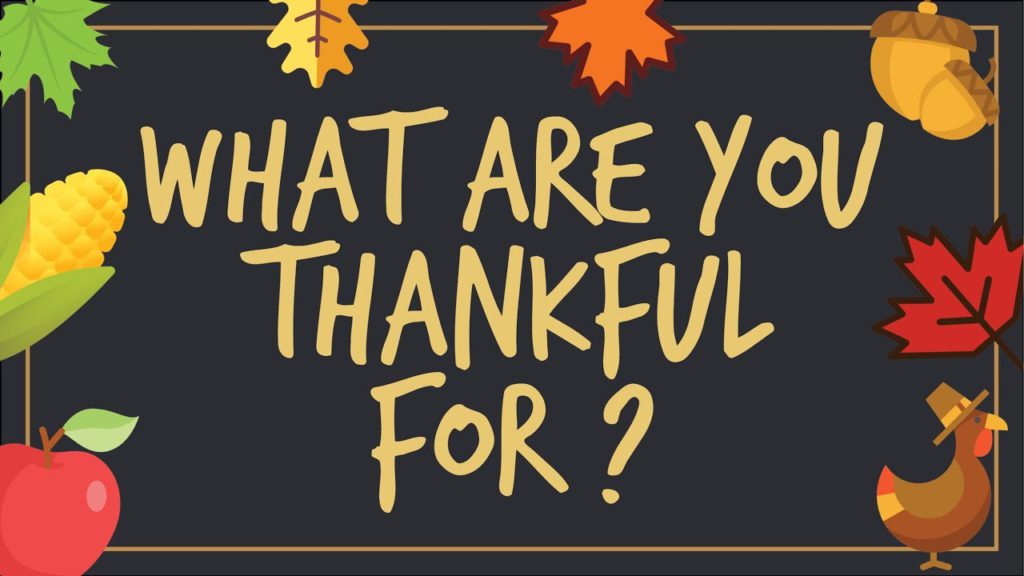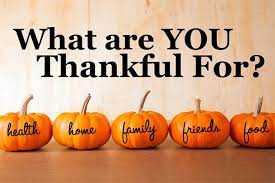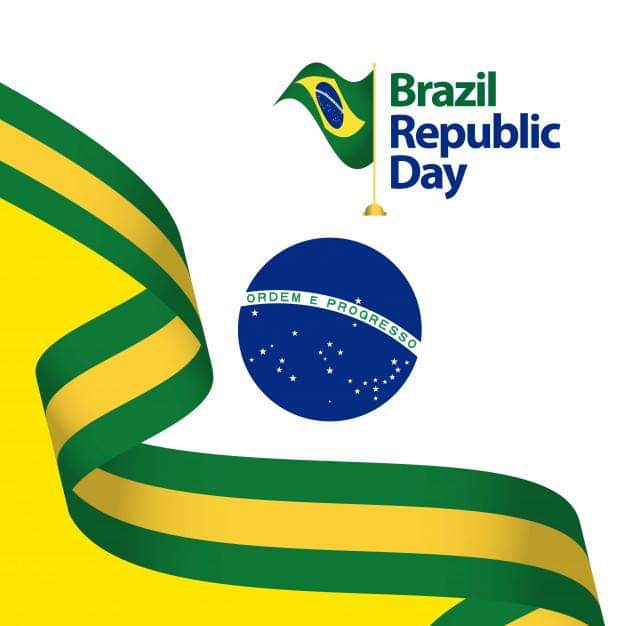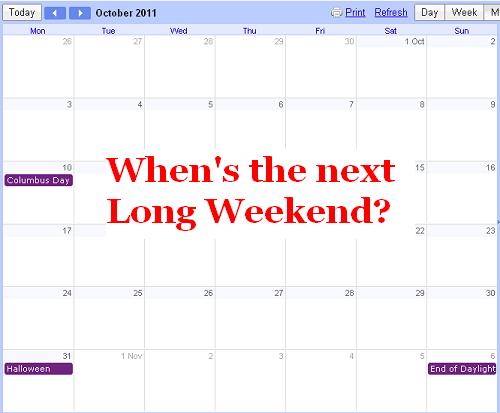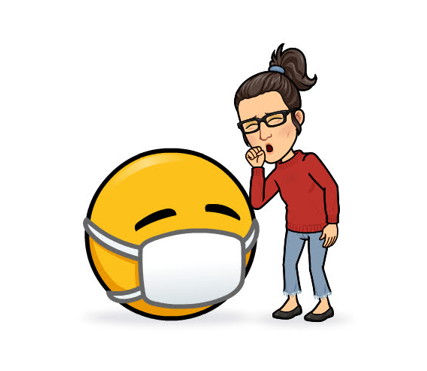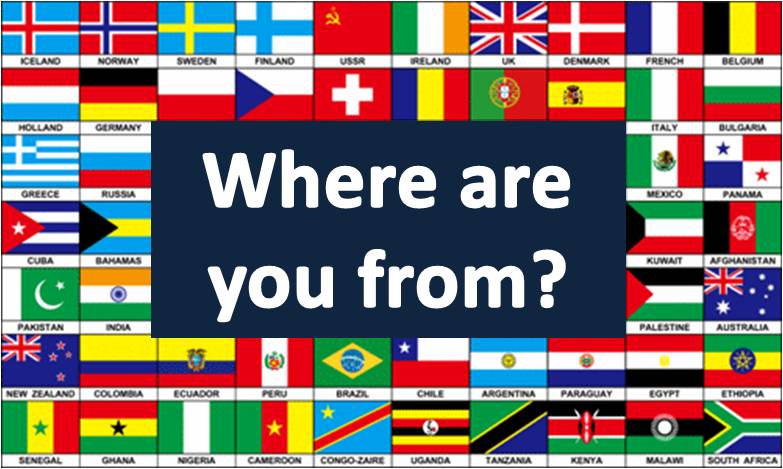
Where are you from?
Where did you come from?
We say our nationality with “I’m”. We say which country we are from with “I’m from…”
“I’m…” + nationality
“I’m from” + country
| I’m Russian. |
| I’m from Russia. |
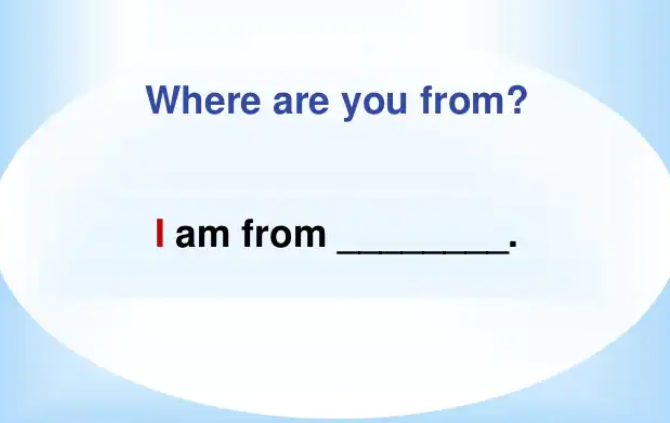
We use “she’s”, “he’s”, and “they’re” to talk about other people’s nationalities.
| Nationality | Country |
| I’m Turkish. | I’m from Turkey. |
| He’s English. | He’s from England. |
⚠️ Learners of English often confuse the words for nationality and country. ⚠️
We can tell the difference between nationality and country by looking at the ending of words. Many nationalities end in “-ish“, “-an” and “-ese“.
Nationalities ending in “-ish“:
| Nationality | Country |
| English | England |
| Turkish | Turkey |
| Polish | Poland |
| Spanish | Spain |
Nationalities ending in “-an“:
| Nationality | Country |
| American | the USA |
| Russian | Russia |
| Brazilian | Brazil |
| Mexican | Mexico |
Nationalities ending in “-ese”:
| Nationality | Country |
| Chinese | China |
| Japanese | Japan |
| Portuguese | Portugal |
If you haven’t seen your nationality or country this lesson, you can look them up.
Look at a dialogue between two people.
Dialogue
Sofia: Hi, I’m Sofia. You’re Alex, right?
Alex: Hello Sofia, yes I’m Alex. Are you from the USA?
Sofia: Yes, I am! Are you American too?
Alex: No, I’m not American, I’m from Russia!
Now the listening practice:
Next, some more language for those who feel that can go a little further.
Anna interviews tourists on the National Mall in Washington, DC. She learns about where they are from and the languages they speak. Listen carefully and write down what you hear.

